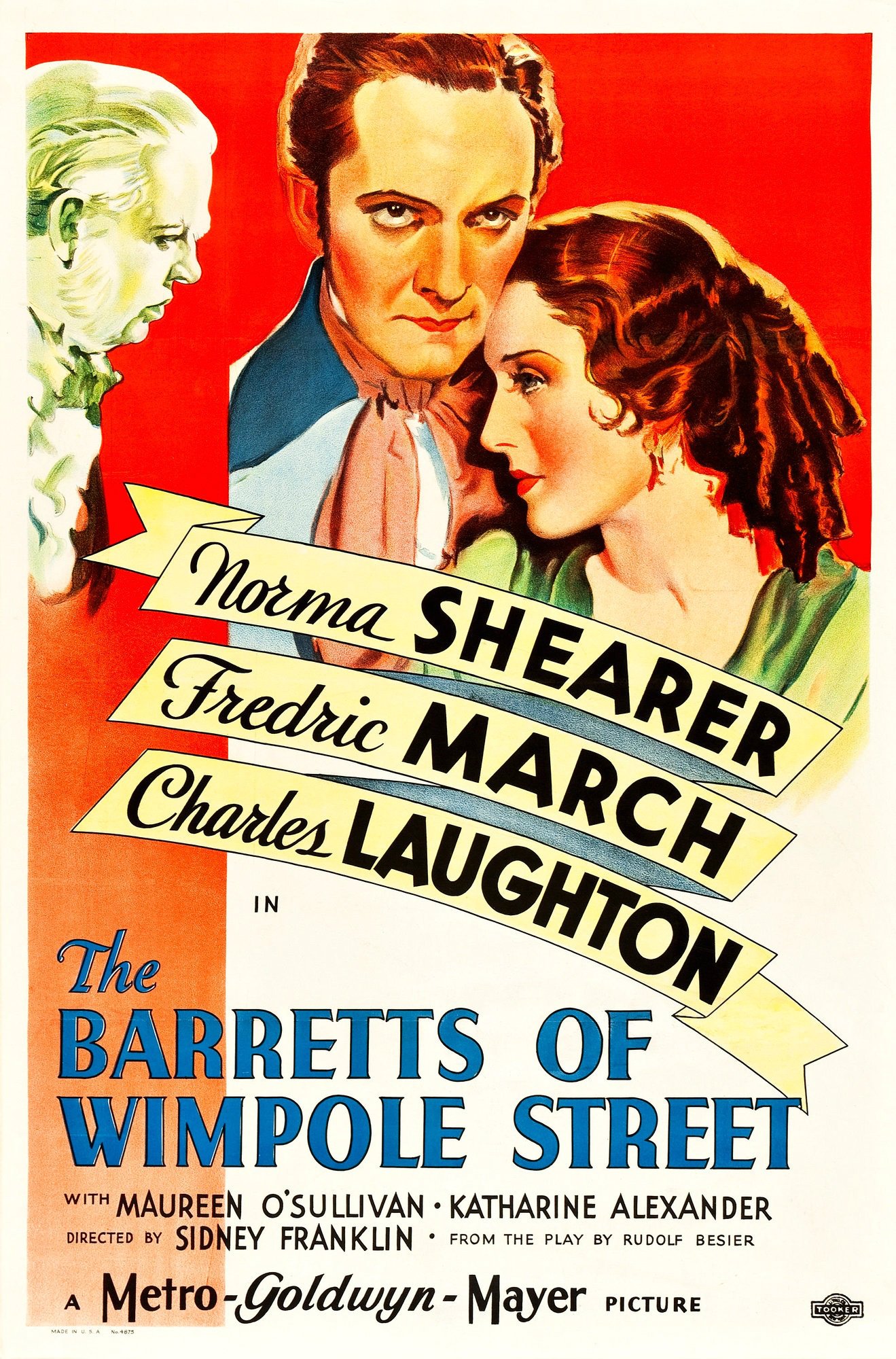Watch: The Barretts of Wimpole Street (1934)
In 1934 the Barretts of Wimpole Street opened to raving reviews from moviegoers and critics alike and became one of the year’s top box office hits. Even today it’s easy to find current reviewers gushing with praise for first rate acting and an outstanding psychological drama with great depth.
The talented and frequently published poet, but also sickly and depressed Elizabeth Barrett, is slowly recovering from a crippling illness. She feels confined by a controlling, cruel, and repressed father who doesn’t want her to be out of his sight. She writes poetry to escape her dreary world. When Robert Browning begins corresponding with her his letters become her lifeline.
When Elizabeth finally meets Robert, her heart belongs to him. She gets healthier and is able to walk. Her father is insanely jealous and possessive and confesses to Elizabeth he has a sex addiction and never wants his children to fall prey to carnal passion. In the movie, he comes close to making a sexual pass. Elizabeth is horrified and repulses him. (Interesting fact - the Hays Code at the time did not allow movies to show any overt depiction of incestuous desire, but one reviewer said “ Charles Laughton’s subtle performance was skin crawling in its pernicious solicitude hiding behind the mask of paternal love and protectiveness.”)
Elizabeth then conspires with her lady’s maid Wilson. Wilson lets Browning know Elizabeth will elope with him and Wilson will be coming along to Italy with them.
The film ends with Elizabeth departing with her dog Flush. It closes with a brief scene of her marriage with Wilson standing up for her as a witness and Flush waiting by the door.
For a film being made in 1934, this one tackles sensitive, taboo, and difficult issues with great psychological complexity and depth. Topics like extremely abusive parent-child relationships, incest, and illnesses caused by domestic tyranny are addressed.
The movie of course is dated, but the consensus from an overwhelming majority of reviewers today recommend this movie as a classic masterpiece. This movie is a must-watch and pairs beautifully with the book Lady’s Maid by Margaret Forster.
(Don’t confuse this stellar 1934 version with the 1957 movie described as a “pasty remake”!)
